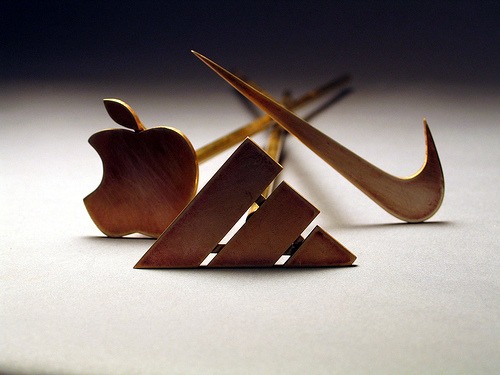Brand Matters

All small businesses and start-ups have the potential to become household names. However, it takes more than a great idea to reach the levels of recognition that Coca-Cola, McDonald’s and Google have enjoyed.
For his star-crossed lovers in Romeo and Juliet Shakespeare wrote, “What’s in a name? That which we call a rose by any other name would smell as sweet.” But were he alive today, he would probably realize that such globally recognized names as Levi’s, Apple or Nike are not interchangeable. What is it about a name or a logo mark that makes a brand successful, memorable and smell so sweet? Would McDonald’s still be McDonald’s without golden arches? What if Nike was swooshless?
It is unlikely that these famous names and identity marks were thrown together late one night. Instead, these ideations came about after business owners, employees and marketing professionals dedicated time and research into understanding every aspect of the business itself; its consumers, competition, industry and product.
As a new business, the idea of hiring someone else to aid in the creation of your brand is a scary one. Many startups don’t have a budget in place for brand development because other needs are seen as more important. However, this is where I must point out that a company’s brand can be the key to its success, a brand adds value that cannot be easily taken away. It is a vital element in creating a credible and valuable business that is easily recognizable and understood by your customers. For example, Nike and it’s swoosh automatically are associated by consumers as an athletic company created to help us reach our peak performance. Why? For starters, Nike and its “swoosh” have that Greek mythology thing going for them, but they have also been branded so succinctly with verbal and visual cues throughout the years that a consistent, cohesive message has been fostered.
Now don’t become downtrodden because you don’t have Nike’s advertising agency to help create your own “swoosh” and “Just do it” campaign. Instead, look at what you do have. Take note of your company and sit down for a little business self-discovery time. Ask yourself, what is your company’s mission? What are the benefits and features of your products or services? What do your customers and prospects already think of your company, or what do you want them to think about your company? And lastly, what qualities do you want them to associate with your company? Do your research, talk to your clients and talk to the people you want to be your clients, find out what they think and don’t forget to look within your company.
Defining a brand takes time, but it is essentially your company’s face to the world, so don’t rush the process and ask for help when you need it.

